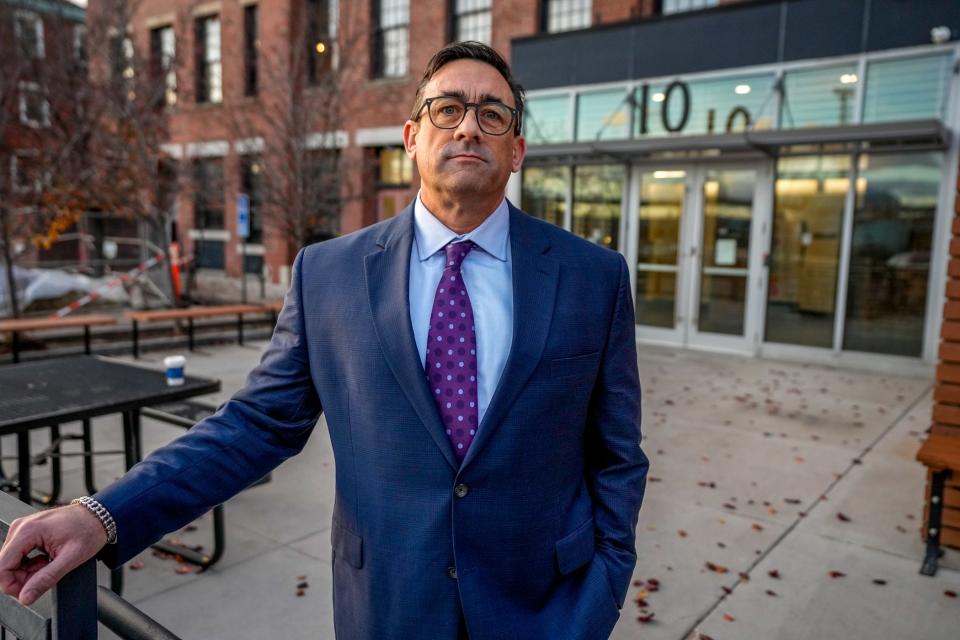'How did this happen?' Primary care shortage keeps hitting RI hard
Long waits, frustrated patients and overworked health care staff are all the symptoms of a doctor shortage that has pushed providers to the brink of burnout. It's a crisis that's been building nationally for years. In recent months, it caused the head of the American Medical Association to raise alarm over doctors saddled with college debt and stretched to exhaustion.
Rhode Island is no exception, particularly when it comes to primary care. The people who are tasked with monitoring your health to prevent disease and treat illnesses are leaving their jobs. Blame workplace pressures, low Medicare reimbursement rates, administrative hassles and retirement.
"You don’t want to need somebody in an urgent situation, whether its for plumbing, electrical – but your health care is even more important than those things," said Dr. Edward McGookin, a physician who is also president of Coastal Medical, the Lifespan health network provider to 120,000 Rhode Islanders.

Prescription for RI: At least 100 more primary care doctors
A new study from the Washington, D.C.-based Robert Graham Center, a research group, says Rhode Island will need nearly 100 more primary care physicians in the next six years to keep up with demand.
"The demands on primary care are outpacing the improvements in the way we deliver care and the way we compensate doctors for it," McGookin said. He said "there’s been a tremendous increase" in the burden of actions required of clinicians.
More: Finding a primary care doctor in Rhode Island is getting more difficult. Here's why
Doctors have to perform about two hours of paperwork for every hour they spend with a patient, and hiring extra people to help with that would mean "tremendous increases in overhead," McGookin said.
For providers, it's an overwhelming situation, and one that means more time spent on documents than dealing directly with the people they care for.
Patient waited over 2 years to see a doctor after losing one
Mike Czaplicki hasn't seen a primary care doctor since August 2021. Sometime around the end of that year, his doctor left Care New England Primary Care. Now, Czaplicki will go to Sturdy Memorial Associates in Plainville, Massachusetts, to finally see a new provider in January.
Finding one was tough, and being without one for so long caused Czaplicki a constant knot of stress as he crossed his fingers that he'd remain healthy in the meantime.
"I've always lived in cities; never had a problem getting a doc," he said, "but now I'm waiting a year, and basically have no choice of doctor? How did this happen? What are we doing here?"
More: RI's new nursing school wants to graduate 'healers,' ease job stress, reduce national exodus
Czaplicki's story isn't unique. Shriram Krishnamurthi, a Brown University computer science professor, said his lost his provider at Coastal Medical in July when the doctor decided to focus on research. Krishnamurthi's next visit won't be until April 2024, but otherwise he hasn't needed to see a doctor. Providence resident Kathi Fisler saw her doctor leave Coastal, too, around the start of the summer.
"The particularly frustrating part for me was that the practice was sufficiently short-handed that they couldn't assign me to another doctor in the same practice," Fisler said. "Instead, I was reassigned to a different Coastal practice, while the rest of my family was still at our original practice."
Providers, educators search for solutions
The numbers add hard facts to the anecdotes. This week, The Public's Radio reported that up to 200,000 Rhode Islanders will be at risk of going without a primary care doctor in 2030 without any political or educational solutions.
Some are already trying to find a way out of the pinch. Providence College has launched a roughly $80-million School of Nursing and Health Sciences, working with students to avoid burnout and remain on their career paths. Nearly a year ago, Johnson & Wales University launched an accelerated nursing degree program. And eventually the education could start with even younger students. A proposal is under consideration for a charter school called RI MedPrep, which aims to get more diverse providers into the field.
Kenneth Botelho, a physician assistant at Coastal Medical, believes the solution also lies in empowering physician assistants and nurse practitioners to become clinicians. In 2022, Botelho launched Paving Practices, which is urging schools to adopt its clinical doctorate program to help cultivate a new workforce by building on the skills that nurses and physician assistants already have.
No schools have yet adopted Botelho's program, but he emphasized that it's still early.
In the meantime, Botelho handles patients with empathy.
"I try to do the best I can to look at it from the patients' perspective," he said. "It’s certainly not their fault they’re going through this."
This article originally appeared on The Providence Journal: Primary care physician shortage in RI reflects their growing burdens

